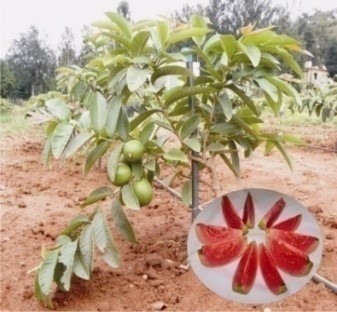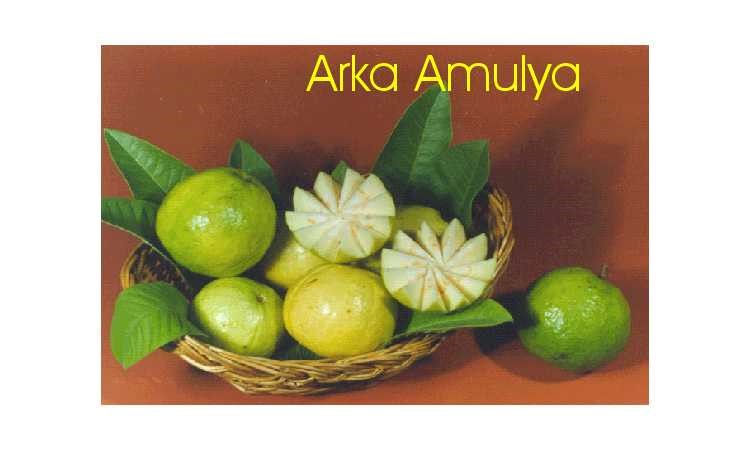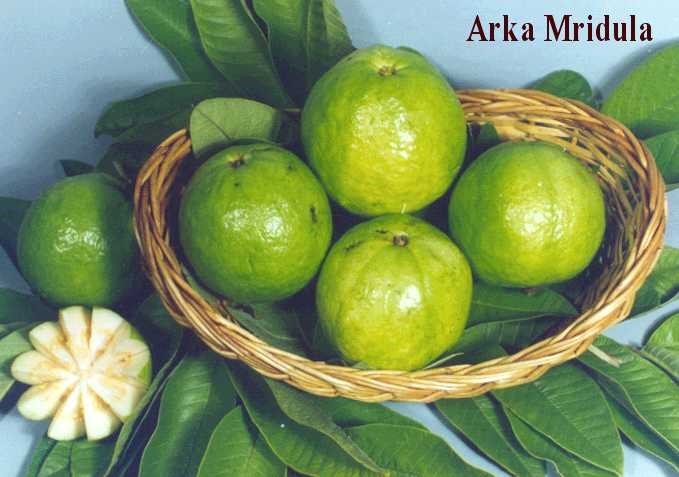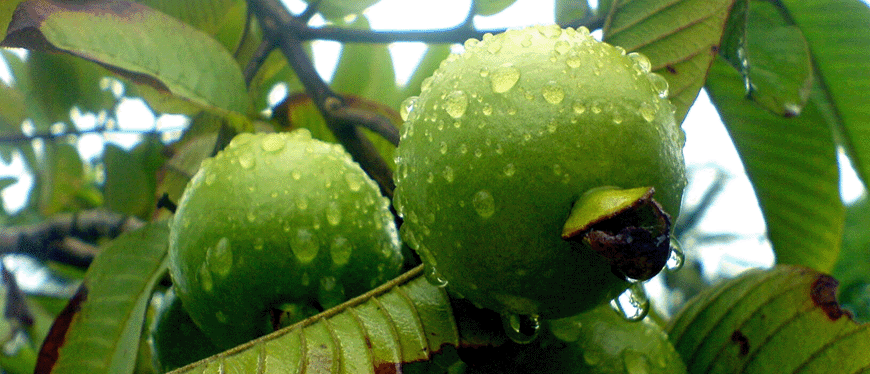Guava - IIHR Varieties
Guava (Psidium
guajava): The
nomenclature and the descriptions of the different guava
varieties grown in India are greatly confusing. Some varieties
are named according to shape of the fruit; skin and pulp colour
while several others after the place of origin. Guava is mainly
a self-pollinated crop but cross-pollination also occurs
resulting in large variability in the seedling population from
which promising genotypes have been selected in different
agro-climatic regions. The characteristic features of IIHR
varieties are given below:
 Arka
Kiran: It is hybrid from the
combination Kamsari x Purple Local. The fruits are
slightly pear shaped weighing on an average about 200 g.
The pulp is pink in colour with high Lycopene content
and seeds are soft (<10 kg/ cm2 hardness) with a TSS of
12°Brix
Arka
Kiran: It is hybrid from the
combination Kamsari x Purple Local. The fruits are
slightly pear shaped weighing on an average about 200 g.
The pulp is pink in colour with high Lycopene content
and seeds are soft (<10 kg/ cm2 hardness) with a TSS of
12°Brix
 Arka
Amulya: It is from the cross
‘Allahabad Safeda’ x ‘Triploid’. Fruits are medium
sized, pulp white, TSS high (12.5°Brix) with good
keeping quality. Plants are semi - vigorous and
spreading
Arka
Amulya: It is from the cross
‘Allahabad Safeda’ x ‘Triploid’. Fruits are medium
sized, pulp white, TSS high (12.5°Brix) with good
keeping quality. Plants are semi - vigorous and
spreading
 Arka
Mridula: It is a selection from the
open pollinated seedlings of Allahabad Safeda. Fruits
weigh about 180-200 g. Seeds are soft with <10 kg / m2
hardness. Fruits have whitish pulp and the TSS is
12°Brix
Arka
Mridula: It is a selection from the
open pollinated seedlings of Allahabad Safeda. Fruits
weigh about 180-200 g. Seeds are soft with <10 kg / m2
hardness. Fruits have whitish pulp and the TSS is
12°Brix
-
 Arka
Rashmi: This is a hybrid from the
combination Kamsari x Purple Local. The fruits are
round, weigh about 200 g. The pulp is deep pink in
colour with high ascorbic acid and lycopene content. The
seeds are medium soft (8-10 kg/ cm2 hardness)
with a TSS of 11-12°Brix.
Arka
Rashmi: This is a hybrid from the
combination Kamsari x Purple Local. The fruits are
round, weigh about 200 g. The pulp is deep pink in
colour with high ascorbic acid and lycopene content. The
seeds are medium soft (8-10 kg/ cm2 hardness)
with a TSS of 11-12°Brix.

